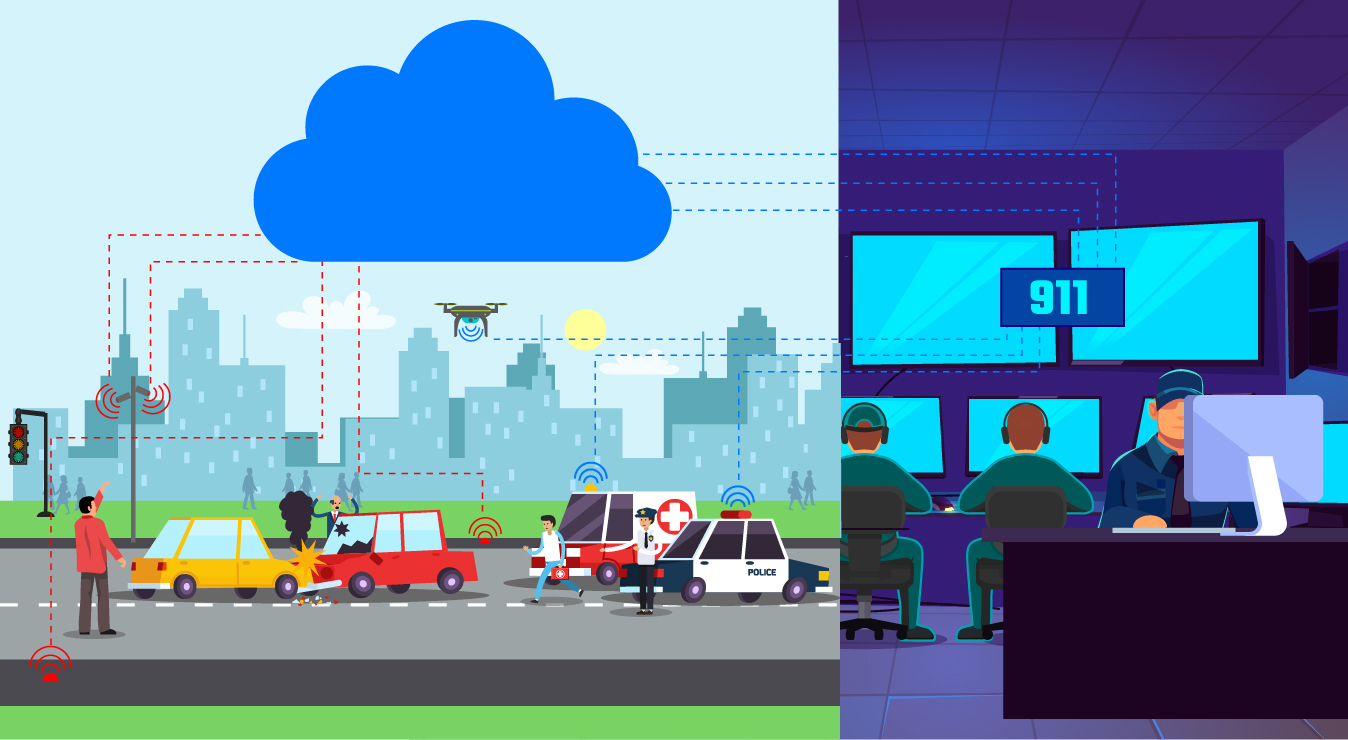
Society is evolving as information, pure data is becoming more accessible by the masses. This has led to revolutions in the accountability, responsibility, and honesty of institutions. But, like any other development, it has the potential to yield great destruction. Like a disease within an organism, faulty data, misconstrued facts, and the disproportional presentation of information can overturn the stability of society and delete lives.
Data also has the power to make things efficient and fair.
And what better institution to make use of these concepts other than those tasked with saving our lives and keeping us safe. Our firefighters, ambulances, and police.
Data flow to them
911 relies on information to function. Unlike the time travelers of “Minority Report”, operators rely on phone calls and maps to help understand chaotic situations. But this model is showing its limitations. As technology has evolved, so should 911.
There are two ways 911 operators should have access to data, IoT devices, and user profiles. All while stressing an importance on privacy, encryption, and anonymization.
User Profiles
The term may seem disingenuous, but it is an accurate description of our society. You live in a state where you pay taxes, a subscription, in return for security.
A citizen, as a user, has a unique set of conditions that require different types of care, and emergency response should mend to those requirements. Similar to how Netflix tailors your suggestions based on what movies you like.
A user can be described with a unique: ethnicity, skin color, height, hair length, hair type, hair color, eyes, face shape, set of possible disabilities, medical conditions, mental illnesses, blood types, phobias, and more.
This user profile should transcend a single device and instead should represent your digital being. And when you interact with a device, system, or robot, it should recognize you as such. And when you beckon for help; your data should be transmitted to 911 and caretakers, along with your location, and your situation.
Private IoT Devices
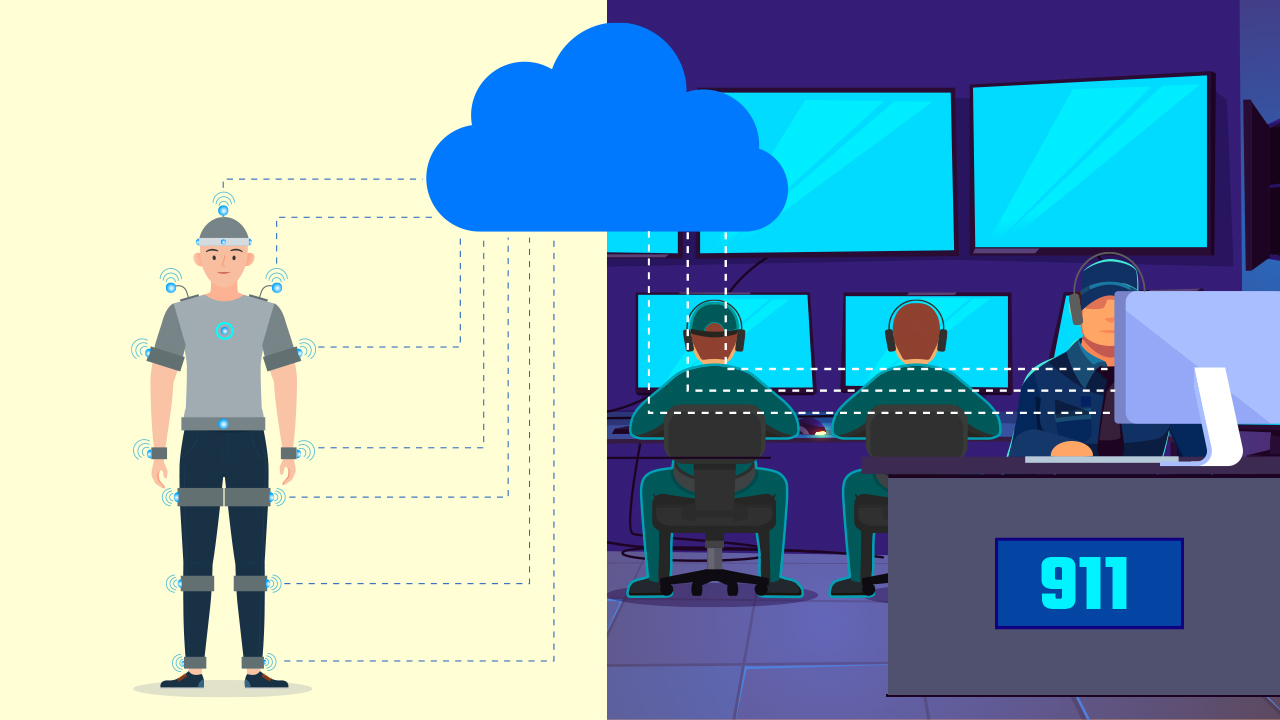
Other than using your phone, there are many technological possibilities for emergency situations. Panic buttons, smart cameras, smart cars, and biosensors. Ideal for heart attacks, strokes, sudden accidents, criminally dangerous situations, and whatever else algorithms are trained to detect.
These systems would be personal, and they would be able to transmit all types of live data. Your location, heartbeat, brain signals, vehicle data, emotional state, etc. It would cross-reference this information with your medical history to deliver insights to caretakers and 911 during a crisis.
For example, a schizophrenic patient is suffering from a panic attack, a smart camera system would be able to detect a peculiarity, understand the nature of the sounds being made, check his medical data, calculate his heartbeat, brain activity, and come to a conclusion. This information would then be sent off to emergency operators who would then be properly prepared for the situation. Also, Family members responsible for the well being of the patient would be alerted. Depending on how these systems are configured, they may be contacted first before they opt for 911.
These systems would initially demonstrate their full capabilities among senior citizens, the physically disabled, and the mentally ill, and perhaps among kids. But as people continue their fusion with technology, these systems will be widely used and transcend its reservation as a far-out technology.
Public IoT Devices
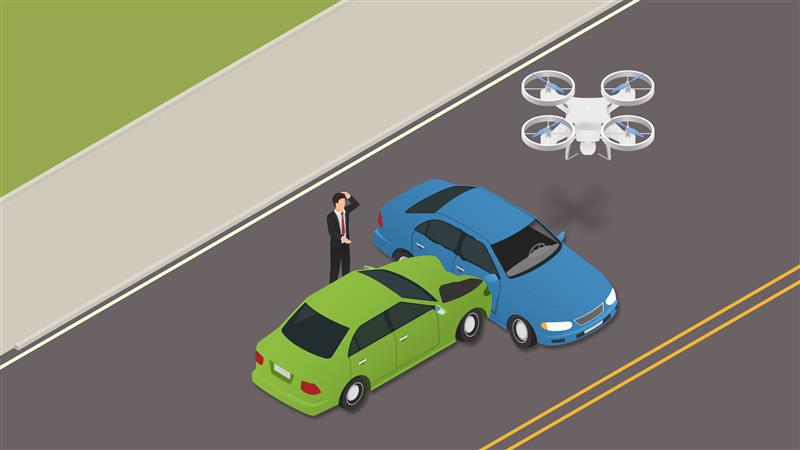
Smart cameras and roadside sensors for public roads and spaces are principal as countries begin to modernize and renovate cities. These systems would have the capability of optimizing traffic patterns. But they will also detect emergencies. With edge computing, data garnered can be analyzed at the location and conclusions can be made.
Combined with other sensors placed within businesses (restaurants, retailers, banks, offices, etc.) these tools will exponentially increase public safety. Imagine fire sensors, temperature sensors, and structural stability sensors, to understand the health of a building during a fire. And motion sensors to detect where people most likely are. When firefighters enter such a circumstance, they will be very well prepared. And over time, many lives will be saved.
These are not only good for safety but for the efficient maintenance of cities. Sewage leaks, faulty street lights, potholes, all can be detected and patched up. The smoothness of things also helps public safety. Directly, but also indirectly as the standard of living improves.
Long Term Consequences
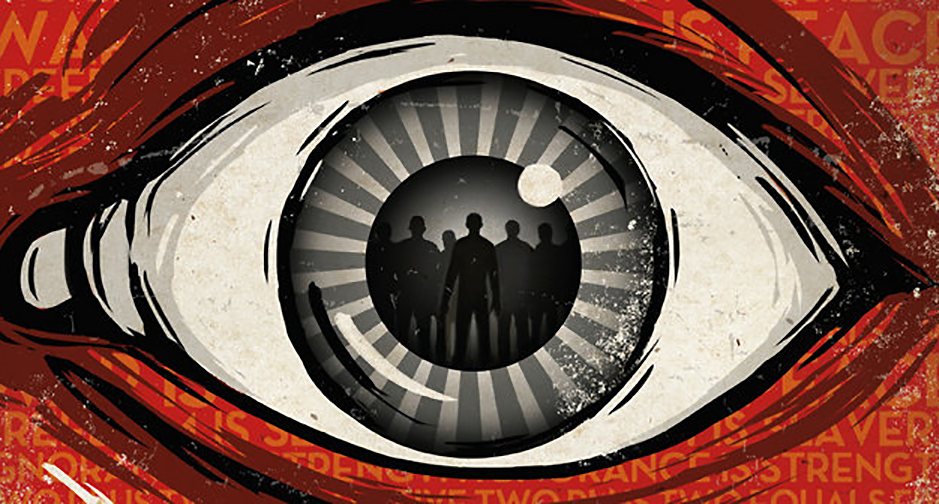
But with any spread of technological innovation, there is moral confusion. How do we protect privacy? With all this information and the fact that the state will use it, raises concerns about an Orwellian future. Not only are their smart cameras, but brain sensors!
Solution
 The truth is these systems are inevitable unless we plan on stagnation. The only thing humans can do is make sure this growth is in conjunction with a general understanding of how these systems work by the people and an expansion in privacy practices.
The truth is these systems are inevitable unless we plan on stagnation. The only thing humans can do is make sure this growth is in conjunction with a general understanding of how these systems work by the people and an expansion in privacy practices.
With the power of encryption and anonymization, these systems can be 100% secure. Perhaps blockchain or another system developed in the future will be widespread. Every individual shall have a set of private keys and hashes. This way their data is protected unless they voluntarily approve.
It is also important that emergency operators do not have the ability to store this information. Their systems shall only be portals of information that they have temporary access to.
The truth is, in an increasingly digital world, every private user should have a set of hashes that no other human has access to. Regardless of age, sex, race, creed, gender, whatever it is. All their data should be handled this way. Social media and the rest should bend to these consumer demands, along with the governments of the world. It should be as natural as a government ID, or Social Security Number, it should replace those actually.
Data Flow to Us
The truth is, these lifesaving services are just that– services. But this service is given a tremendous amount of power and responsibility. As a result, there must be systems of accountability.
And since these services are public in nature, so should its information.
The Uber Model
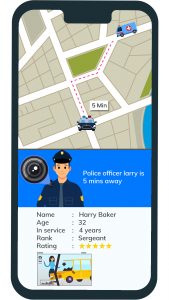 When you order an Uber, you see who is driving you, which car they have, and the driver’s reviews. Why should it be any different for those tasked with saving your life?
When you order an Uber, you see who is driving you, which car they have, and the driver’s reviews. Why should it be any different for those tasked with saving your life?
Every public service vehicle should have trackers so users can keep track of them. Users could be alerted by voice assistants and notifications. (Officer Peyton is 5 mins away).
Outfitted with long-lasting bodycam’s, police video should be available to users. After an incident, footage should be made available. And users should have access to that video within their history.
Biometric data like pulse, heartbeat, brain waves, blood composition, should be tracked while on the job. So when reviewed later, a mental state can be established from which to draw conclusions on in relation to other evidence. It would also be great to monitor the health of police officers, firefighters, and the like.
Why This Is Important
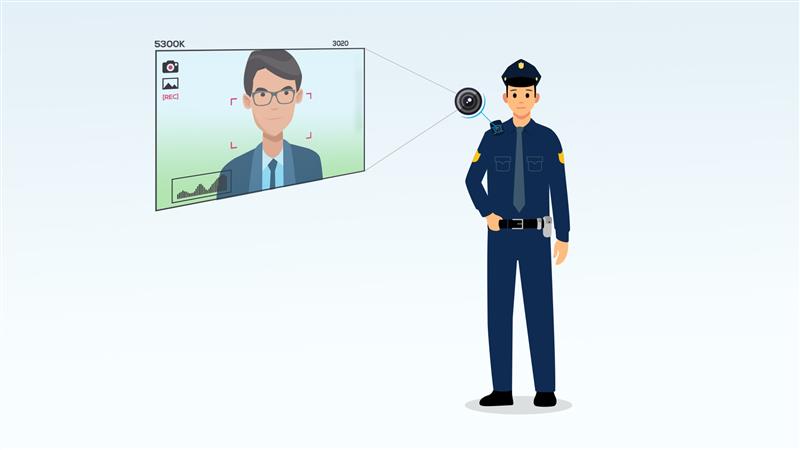
Prosperity
Smart technology used with advanced algorithms and artificial intelligence has the capability to revolutionize many aspects of life. One such aspect is our immediate safety and wellbeing. The possibilities are possible and promising.
But it is important people understand the importance of privacy. If led astray by the majority of society, a slippery slope will become evident; people would realize it has been too late by the time privacy no longer exists.
Accountability
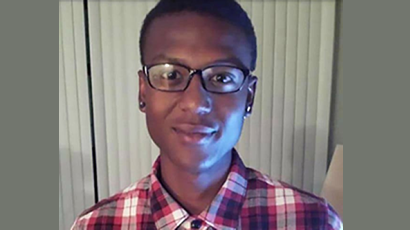


This technology will also hold those tasked with keeping people safe accountable. The vast majority of these men and women are honorable heroes. But people are flawed, and as a result, systems meant to protect us can become corrupt. There are many cases of police brutality throughout this nation’s history and recent history. George Floyd, Elijah McCain, Breonna Taylor, just to name the recent few who have been victimized.
Imagine a world where committing such acts and getting away with it is simply impossible? There would be a multitude of sensors and data points that illustrate behavior on the job. This combined with the fact excuses would be non-existent; operators would have temporary access to all types of data that would outline a situation. Proper training and A.I. assistance
would help efficiently deescalate a situation, what otherwise may have had a violent outcome.
Additionally, physical badge numbers are becoming obsolete. Police should have chips in their uniforms that identify them. As well as firefighters and ambulances. All these devices working together can provide a seamless experience to bystanders. When one opens up their phone, they will be able to verify their authority.
Effeciency
Another power of data is efficiency. With the ethical use of information, our states, our cities, our towns can be designed to be more optimized and free-flowing. Our police forces can become much more affordable to run. The United States for example pays around $100 billion dollars per year on policing. And another $80 billion on incarceration.
With technology and automation, a significant fraction of the yearly budget can be slashed. And as a result, more funds would be available for other social programs. There would also be more money available to make sure the cops we do hire, are highly trained in de-escalation and martial arts so lethal force is used only when absolutely necessary.
The Future
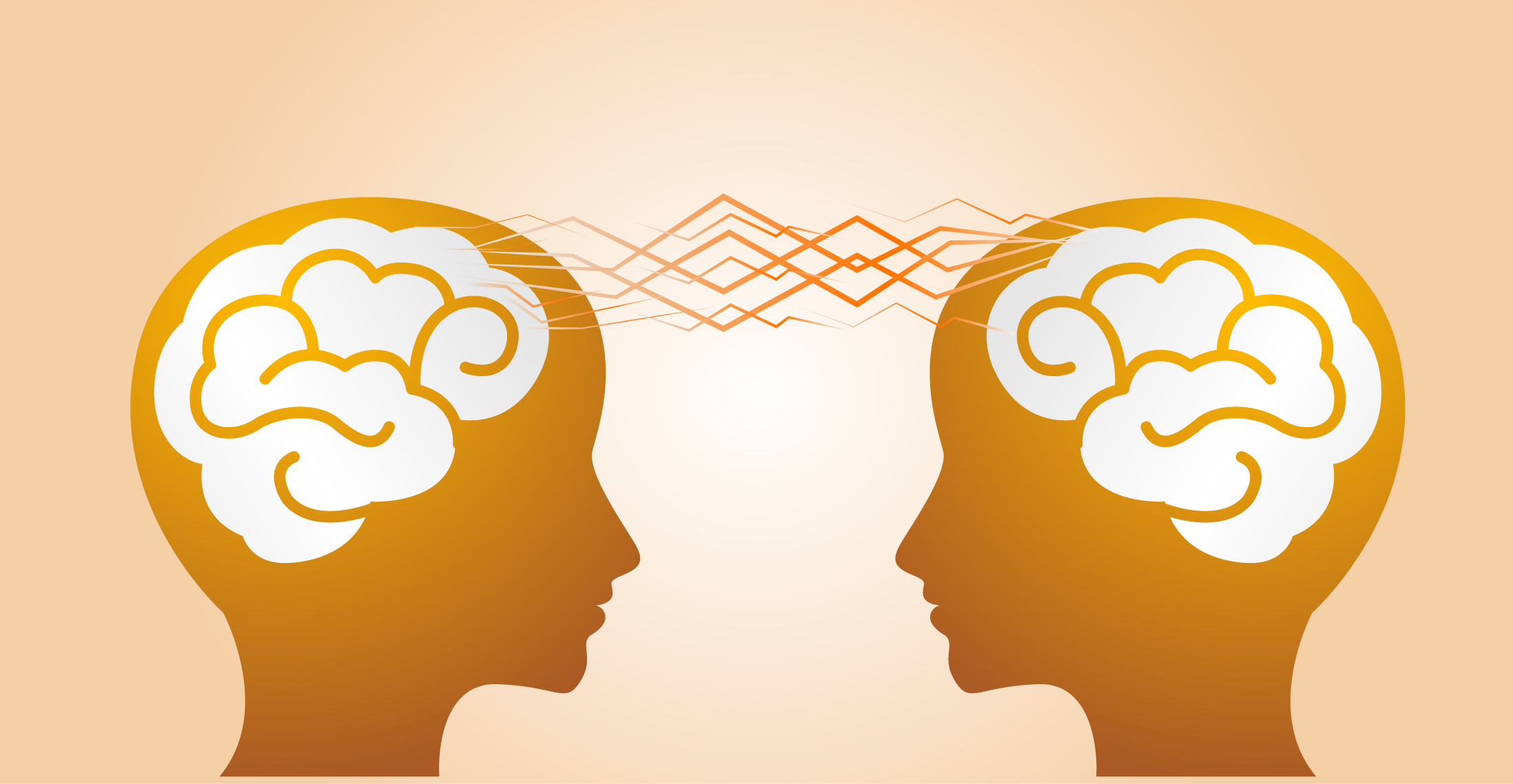
This all may seem ridiculous, but this inevitable. Biosensors and IoT will pervade every facet of our lives. Products like Elon Musk’s Neural Link are going to be one of many. Like an iPhone, there will be competition, and people will change models every once in a while to upgrade.
Humans need to stay relaxed and evolve with consideration.
Security is simply one aspect of infinite possibilities. Eventually, such services won’t even be necessary. Imagine a future like that.
What does Salutus have to offer?
Salutus is in the business of making the process of family care easy and affordable. We look at family care through the lens of biological health and physical security. And we will innovate in this sector.
Our current Knomi Panic Button GPS Tracker Device can serve these two overarching goals. However, it is not the end-all-be-all. It is ideal for the present health and wellness of its users. With 6-month battery life, it does not require much maintenance and is consistently reliable. Great for young children on their way to school, senior citizens living home alone, and for those who struggle with physical disabilities.
Whenever in an emergency, dealing with a criminal threat or a health-related issue (like a heart attack) users can press a panic button. And caring, worried, caretakers can always open up the Salutus app to check on their locations.
However, in the coming updates, Salutus will greatly expand on this technology with Smart 911 software. A simple update and caretakers will be able to contact 911 through the app in dire situations. 911 would have temporary access to all types of relevant information such as medical data, physical descriptions, and anything else one might imagine that may prove useful to 911.
And then, as we release more advanced technology to the public, smart algorithms and robotic AI caretakers will be able to initiate automatic alerts. Parents and caretakers will be able to use this advanced technology to protect their families.
This is just one aspect of Salutus and its mission. If you are interested in learning more about our aspirations, and the way we will go about it, please check our other articles.
Additionally, we would also greatly appreciate your support.


